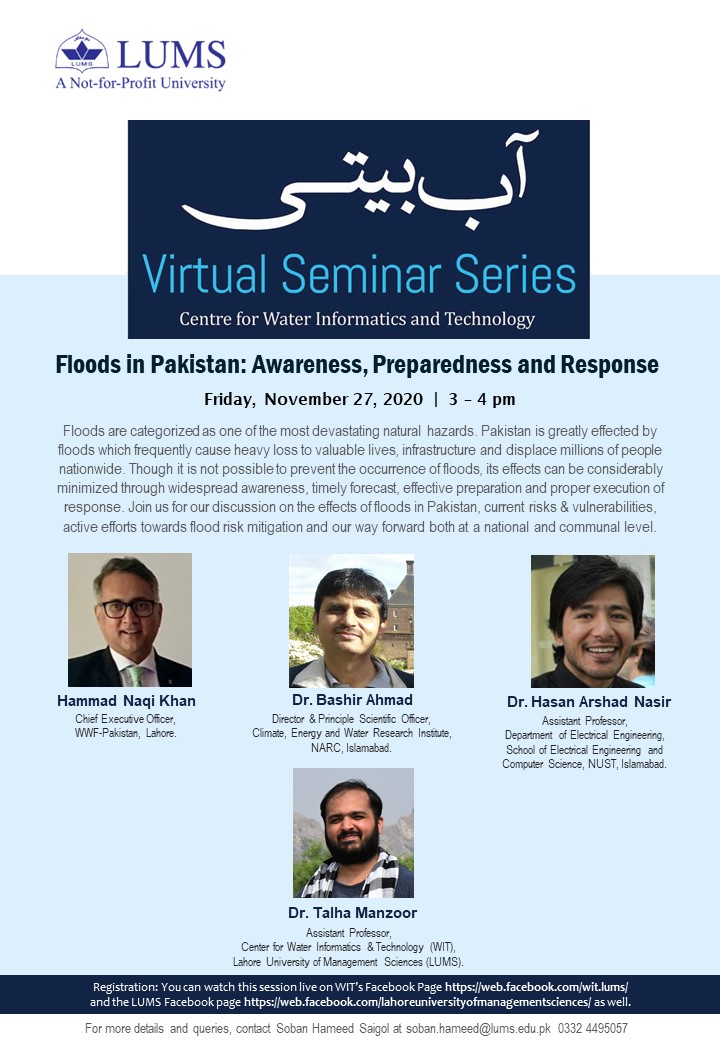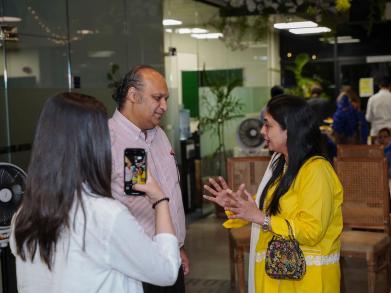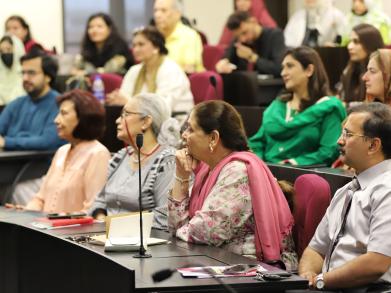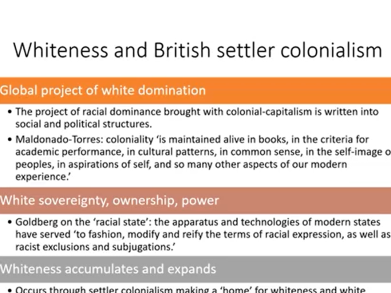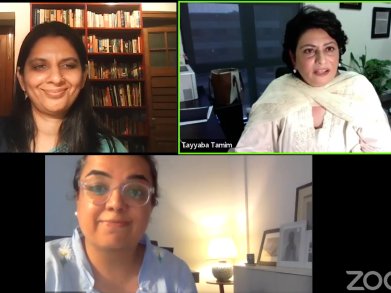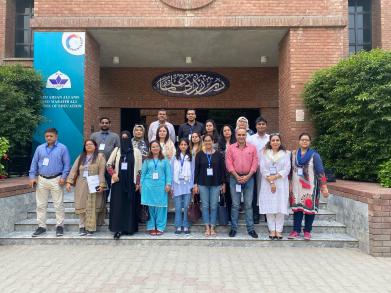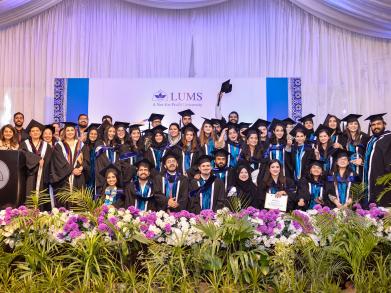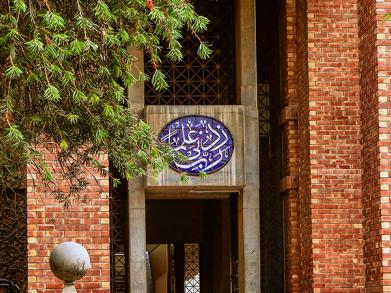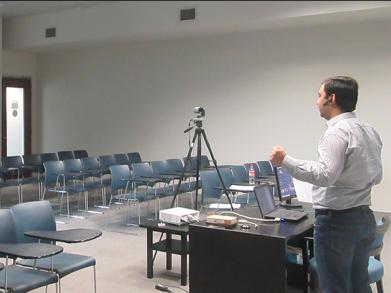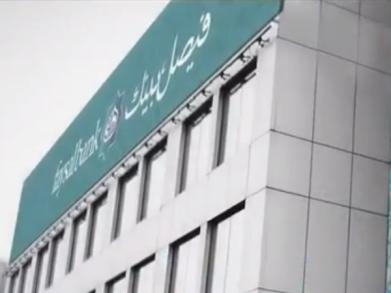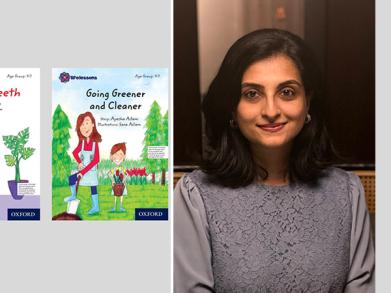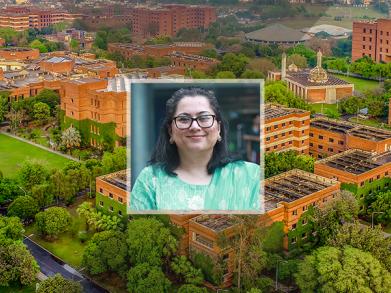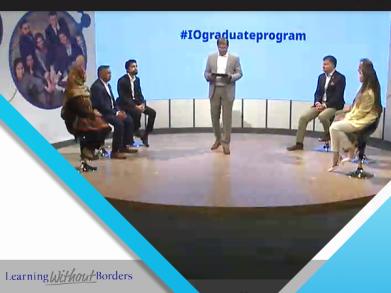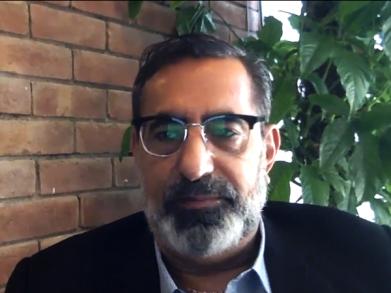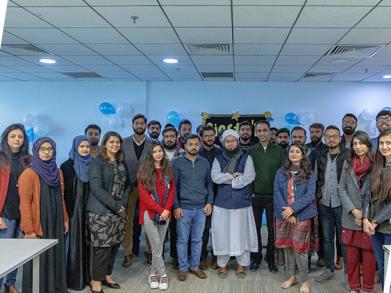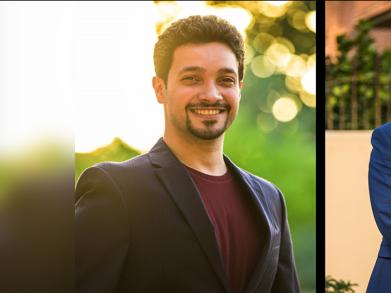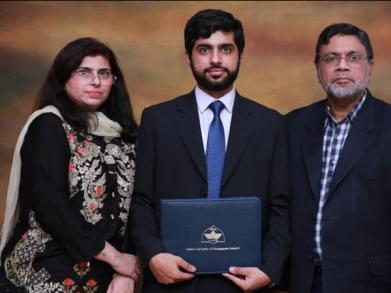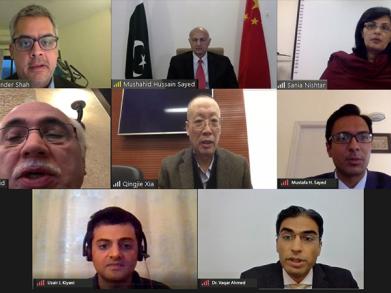
to
The Centre for Water Informatics and Technology (WIT), is organising a virtual seminar, as part of its آب بیتی series. The seminar will include a discussion on the effects of floods in Pakistan, active efforts towards flood risk mitigation and the way forward - both at a national and communal level.
The distinguished panel includes experts of this field in Pakistan; Dr. Hammad Naqi Khan, Dr. Bashir Ahmad and Dr. Hasan Arshad Nasir. The session will be moderated by Dr. Talha Manzoor, Assistant Professor at the Centre for Water Informatics and Technology (WIT), LUMS.
Date: Friday, November 27, 2020
Time: 3:00 - 4:00 pm
You can watch the session live on WIT, SBASSE and LUMS Facebook pages.
To attend the session, you are required to reserve a spot on the LUMS Facebook page.
Profiles of Panelists
Dr. Hammad Naqi Khan
Dr. Khan is the CEO of WWF, Pakistan. He possesses more than 30 years of professional experience in climate change adaptations, water management, resource mobilisation and partnership building, market transformation and greening the supply chain, and sustainable agriculture with a focus on improving farmer’s livelihood and food security.
As the Global Cotton Leader (from August 2011 to July 2014) under WWF-International's Market Transformation Initiative (MTI), Dr. Khan has lead advocacy approaches, representing WWF in multilateral fora and other policy dialogues. He was a member of the Senior Executive Team (SET) for Asia Pacific Growth Strategy (APGS) and has also represented Asia Pacific in the Network Executive Team (NET) of WWF-international since 2015 till July 2018; in addition to being a member of SWG and WWF GEF Steering Committee. Dr. Khan is a non-official member of the Pakistan Climate Change Committee chaired by the Prime Minister, a Member of IUCN-Pakistan National Committee (PNC) and a LEAD Fellow.
Dr. Hasan Arshad Nasir
Dr. Nasir is currently working as an Assistant Professor at the Department of Electrical Engineering, National University of Sciences and Technology (NUST), Pakistan. He received his BE degree in electrical engineering from NUST in 2009, his MS degree in computer engineering from Lahore University of Management Sciences (LUMS), Pakistan, in 2011, and earned his PhD from the Electrical and Electronic Engineering department at the University of Melbourne, Australia, in 2016. After his graduation in 2016, he served as a Post-Doctoral Research Fellow in the same department for two years. His current research interests include the control and modeling of grid systems. In Australia, he got an opportunity to study the upper part of the Murray River from the point of view of incorporating control strategies to avoid flooding and water scarcity in one of the longest rivers in the country.
Dr. Bashir Ahmad
Dr. Ahmad is a professional hydrologist with over 25 years of professional experience in research, academia and consultancy services. He holds PhD in Civil Engineering from Tokyo University, ME in Hydrology from UET Lahore and BE in Agriculture from the University of Agricultural Faisalabad. Currently, he is serving as National Climate Change Coordinator of Ministry of Food Security and Director Climate Energy and Water Research Institute (CEWRI) in Pakistan Agriculture Research Council. He has been serving Pakistan Agriculture Research Council in various capacities including Director Water, Director Environment, Director Dams Command Area in PARC. His areas of interest are investigation of the impact of climate change on water resources and agriculture, climate change and food security, hydrological modelling, irrigation and water management, remote sensing and GIS applications in natural resources management and Alternate energy in agriculture, etc.
Dr. Ahmad has participated in more than 60 international meetings and conferences abroad of policy, development and science nature mostly in Japan, USA, Canada, Netherland, UK, Australia, etc. He has more than 50 publications in international journals, 1 book, 6 book chapters, and 10 policy papers.
Dr. Bashir Ahmad is also an HEC Approved PhD supervisor, and has advised 20 Mphil/Masters and 10 PhDs at Wageningen University Netherland, University of Augsburg Germany, University of Tokyo, KIU Pakistan. Dr. Bashir Ahmad has developed and executed 25 projects and is currently implementing 3 regional projects. He has arranged 4 international conferences, 10 international and 20 national training workshops in Pakistan. He has also implemented national projects in the field of Water Resource Assessment, Water Management, drip/sprinkler irrigation, Water Recourses including Flood and Drought, Climate Adaptation and Mitigation, Environment, Eco-system services projects funded by PSDP, IDRC, DFID, JICA, UNDP, World Bank, ADB, etc. He recently completed a regional project known as HI-AWARE (IDRC/DFID funded) on climate change, which was implemented in Pakistan, India, Nepal, Bangladesh and Netherland, ACIAR-Australian funded project on irrigation efficiency assessment and improvement.
Presently he is implementing a pilot project on command area development on micro-irrigation systems for water productivity enhancement.
Dr. Talha Manzoor
Dr. Manzoor is currently serving as an Assistant Professor of Research at the LUMS Centre for Water Informatics and Technology (WIT) and also teaches in the Department of Electrical Engineering at LUMS.
He graduated in 2010 with a BS in Mechatronics Engineering from the National University of Science and Technology (NUST), Islamabad and subsequently joined LUMS where he completed his MS in Computer Engineering in 2013 and PhD in Electrical Engineering in 2017. He was part of a team that won first place in the National Instruments (NI) Mine Detection Robot Design Competition held in Beirut, Lebanon in 2011 and was awarded the gold medal in academics for both his BS and MS degrees. During his PhD he has spent time as a visiting researcher at the Advanced Systems Analysis program of the International Institute for Applied Systems Analysis (IIASA), Austria and the Robotics Research Lab at TU Kaiserslautern, Germany. After his PhD, he served for a couple of years as an Assistant Professor of Electrical Engineering at Namal Institute, Mianwali.
Dr. Manzoor’s work is focused on the modelling, control and estimation of complex dynamical systems. In his research, he works with such systems in the form of complex networks of human agents as consumers of natural resources, as opposed to the conventional treatment of human behaviour as disturbances, exogenous inputs or uncertainties. He employs research from social-psychology to form mathematical models of consumer behaviour. To analyse these models, he applies tools from Optimal Control, Game theory and Network Science to help pin down the characteristics of sustainable societies. He has also worked on control and estimation problems in robotics. This includes both theoretical and development work in Robotic Vision, SLAM and State Estimation.
